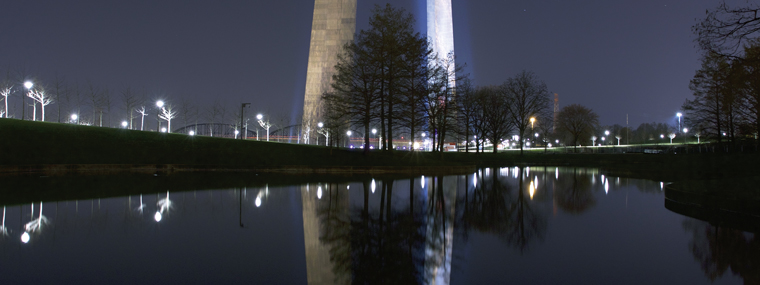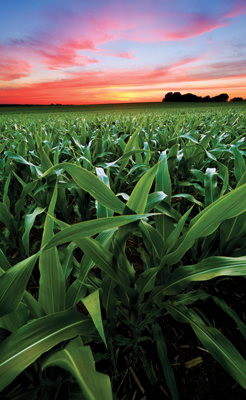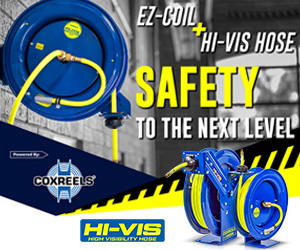
Regional Profile
Midwest—Work Hard and Play Hard in the Midwest
By Diane M. Calabrese / Published May 2018

Billy Rose’s Jumbo, The Music Man, Oklahoma!, and The Harvey Girls may not share the literary rank of Shakespeare’s plays, but they offer the same lessons about human interactions. One cannot go wrong seizing on some of the why-we-ought-to-do-it-right allegory that these musicals set in the Midwest offer.
Midwest as the heartland fits. The area is vast, agriculture and industry thrive, and the region is the place where east and west meet. The geographic center of the contiguous 48 states lies four miles northwest of Lebanon, KS.
“Everyone has heard about the work ethic of the people in the Midwest, and it’s true what they say,” says Aaron Auger, water treatment division manager at Mi-T-M Corporation in Peosta, IA. With a job that takes him across the country as a matter of routine, he values the industriousness that defines the nation.
Yet Auger sees the Midwest as special in its “second to none” work ethic. “A wise man once told me that we work hard and play hard, and that’s been in the back of my mind since the early days of my professional career,” he explains.
Distance is one of the big challenges for a manufacturer or distributor in the Midwest, says Auger. “Although there are many urban areas in our part of the country, the majority of the customers around us are in smaller towns.” That means more miles between customers. “It forces those distributors to work smarter. Making more stops along a route on sales or service calls makes sense and is more efficient.”
Couple distance with low temperatures in the Upper Midwest and the Plains. “Our winters and the cold temperatures would cause a bit of surprise to those in other parts of the country,” says Ben Hagemann, general manager at American Pressure Inc. in Robbinsdale, MN.
Customers need to use machines when the temperature is as low as 10 degrees below zero Fahrenheit, explains Hagemann. “It becomes a careful art for such end users. From November to April, all the machines that leave our shop are winterized, running, or left on the back of a heated van.”
The representation of varied economic enterprises makes for a very interesting region, says Hagemann. “One thing that is great about the Midwest is the quality of customers we have—from farms to factories we have a wide range of customers we work with, and no two are the same or have the same needs.”
Hagemann also points to the strong tie between the Midwest and our industry—another dimension of the heartland. “An interesting aspect to the areas we work in is the rich history in our industry—many of the pump companies are in our region,” he explains. “There were also a number of companies that made innovative pressure washers in years gone by, such as L&A, Futura, and a few others.”
Opportunities, Boundaries, and Optimism
The Atchison, Topeka, and Santa Fe Railway ceased operation at the end of 1996, after a good 120-year run. Tractor-trailers have supplanted ever-so-many rails, especially in the Midwest. As it usually does, change created opportunities.
“We have a large volume of trucking companies within the Midwest region which deal with four seasons of weather,” says Terry Craycraft, North America detergent solutions manager at Hydro-Chem Systems Inc. in Caledonia, MI. “The large volume of trucking companies allows many fleet-washing companies to grow their business quickly.”
 Serving fleet washers requires being synchronized with their changing needs across seasons. “Weather conditions are the number-one challenge for a contractor serving customers in the Midwest,” says Craycraft. Manufacturers must understand how the weather affects fleet cleaning.
Serving fleet washers requires being synchronized with their changing needs across seasons. “Weather conditions are the number-one challenge for a contractor serving customers in the Midwest,” says Craycraft. Manufacturers must understand how the weather affects fleet cleaning.
Opportunities are good for distributors and manufacturers in the region. “There are a lot of manufacturing and trucking companies within the Midwest region, which allows distributors to reach out to them for their cleaning equipment and detergent solutions needs,” says Craycraft.
The boundaries for the Midwest are no firmer than for any other region. Encyclopedia Britannica includes Michigan, Ohio, Indiana, Illinois, Wisconsin, Minnesota, North Dakota, South Dakota, Nebraska, Iowa, Kansas, and Missouri. We add Oklahoma. Employment levels are high throughout the Midwest. In January 2018, Iowa and Nebraska both registered just 2.9 percent unemployment, the lowest for a region where lows in the three to four percent range prevail. (Below four percent is considered full employment by some economists).
Optimism and commitment have long been inextricably linked in the Midwest. One does not farm, travel to a new home in a prairie schooner, construct a sod house as an anchor, or engage in any of the long list of historically significant activities that built the Midwest without ample amounts of both. Those characteristics contribute to the opportunities for the pressure washing industry in this area.





